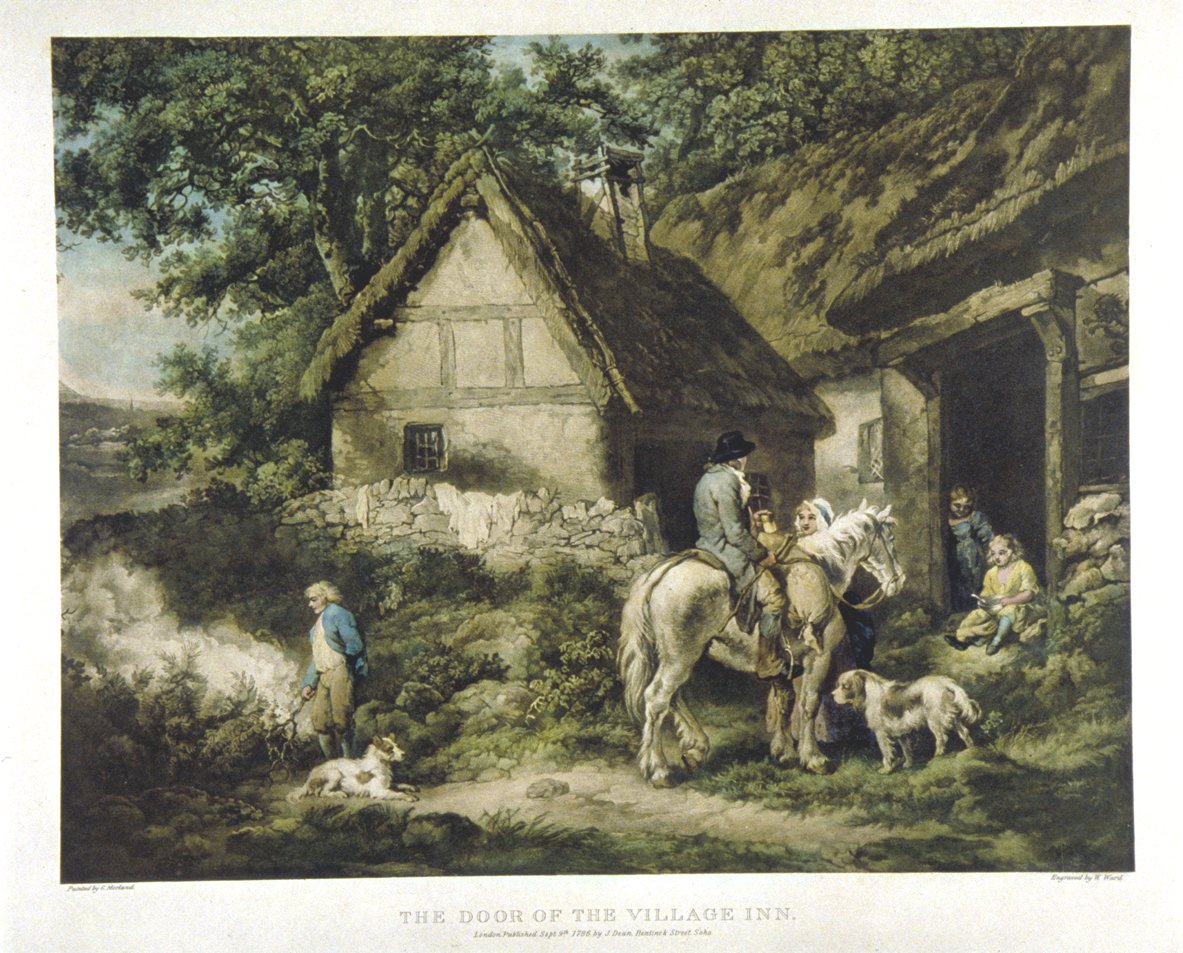The Door of the Village Inn
George Morland (1763 - 1804)
William Ward (1766 - 1826)
Colour aquatint
published 9 September 1786
-
About the work
- Location
-
Country: UK
City: London
Place: Government Art Collection
-
About the artist
George Morland was born in London, the son of painter, engraver and art dealer Henry Robert Morland. He was apprenticed to his father before studying at the Royal Academy Schools. Morland first exhibited work at the Royal Academy when he was aged about ten and went on to be a regular exhibitor there and at The Society of Artists of Great Britain. In 1780, the first of numerous engravings after his work were published. Morland’s work had a wide appeal and was often copied or even faked. His last years were plagued by excessive drinking, debts and poor health. Although he continued to paint to pay his creditors, the quality of his work declined. He died in a bailiff's lodging-house in Clerkenwell, London, reportedly of a brain fever.
William Ward was the son of James Ward, manager for a fruit and cider merchant. His younger brother, also named James Ward was a painter. Ward held the position of mezzotint engraver to the Duke of York from 1804 and engraver to the Prince of Wales from 1813. The following year he became an Associate Engraver of the Royal Academy. He died in 1826 at his home in Warren Street, London.
-
Explore
- Places
- Subjects
- Materials & Techniques
-
Details
- Title
- The Door of the Village Inn
- Date
- published 9 September 1786
- Medium
- Colour aquatint
- Acquisition
- Purchased from Robinson and Foster, July 1951
- GAC number
- 1339